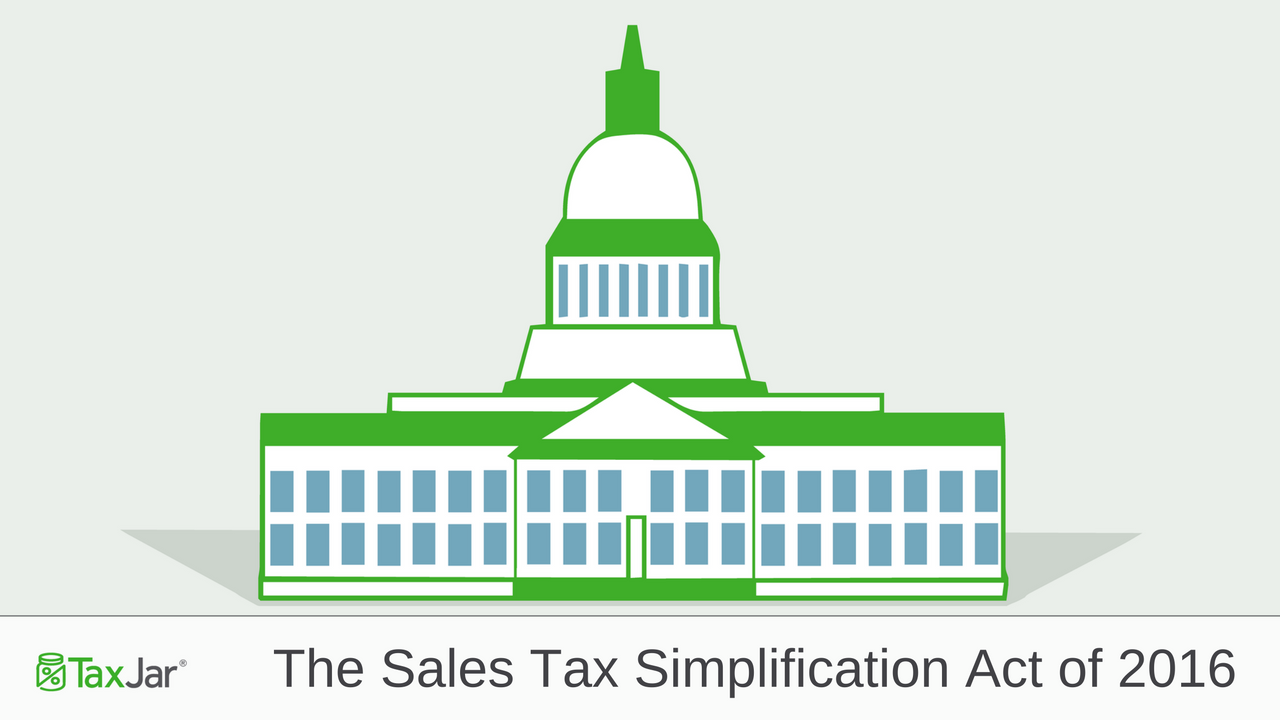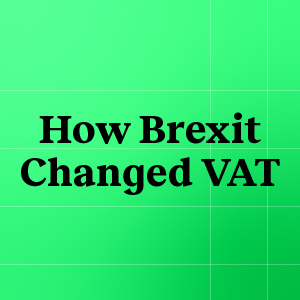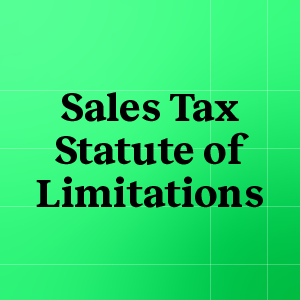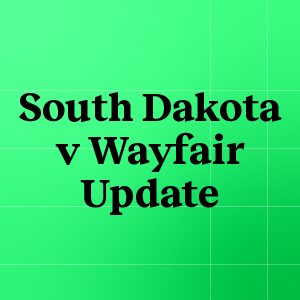The Sales Tax Simplification Act of 2016
by August 31, 2016
A discussion draft of House Judiciary Chairman Rep. Bob Goodlatte’s (R-VA) long-awaited “Sales Tax Simplification Act of 2016” has finally been circulated.
If passed, this sales tax legislation would impact every online seller who sells to customers in the United States.
We took a look at the first version of the draft and wrote up some thoughts on the bill as it’s currently written and what it would mean for online sellers if it were passed as-is.
As always, this is our attempt to parse this new law and determine whether or not an internet sales tax bill would be good for our readers and customers: online sellers trying to make a living and build a livelihood. In our opinion, Congress hasn’t adequately taken small-and-medium online sellers into account when writing these laws, though this particular law seems to be a more thoughtful attempt at finding a common ground between states, online retailers, and brick and mortar retailers. You can see our opinions on the other internet sales tax efforts here.
Parsing the Sales Tax Simplification Act of 2016
First, a couple of definitions to make sure we’re all on the same page:
- Origin state – the state where a seller is based. By an internal revenue code definition, this is where the seller has the most employees.
- Remote sale – a sale to a state where the seller isn’t based. (Example: When you live in and have employees in Missouri but make a sale to a buyer in California.)
Bear with me here, because creating a whole new system of sales tax gets complicated!
This law would create a central clearinghouse in which states can elect to participate. Participating states would be entitled to receive disbursements of sales tax collected by remote sellers on sales made in that state.
The Quill nexus standard would no longer apply to participating states. This means that, under the law, a seller would be required to collect sales tax from buyers in remote states as long as the buyer is in one of those clearinghouse states.
Sales tax would be collected using a “hybrid-origin” approach. Each state in the clearinghouse would set its own single sales tax rate which remote online sellers are required to collect from buyers in that particular state.
Example: Jeff lives in Alabama and makes remote sales to 10 buyers located all over New York state. If this bill passes, he’d charge a single New York state sales tax rate to all of those buyers. Under the current system, Jeff has to work with “destination-based” sales tax sourcing, and try to figure out which state + local + special tax rate to charge to each buyer in New York.
Sellers would use their home state’s tax base (i.e. core tax rules) to determine whether or not an item is taxable. (There is still some debate over how clothing will be taxed should the bill pass. Though I wonder how they will also treat things like groceries, textbooks, and digital goods, which are just a few of the items that are taxed differently from state to state.)
Example: Jessica sells textbooks, which are taxable in her state, to a buyer in a state where textbooks are considered tax exempt. She would still charge sales tax to that buyer even though the buyer lives in a state where textbooks aren’t taxable. But she would charge the remote state’s sales tax rate to this buyer.
One unequivocally positive feature of this bill is that sellers will only have to file a sales tax return in their origin state. And the seller – in most cases – can only be audited by their origin-state.
What if a State Doesn’t Participate in the Clearinghouse?
This was the most difficult part of the bill for me, personally, to parse. In my understanding, if a state does not participate in the clearinghouse, then remote-sellers from participating clearinghouse states are still required to collect sales tax from buyers in that state, but at the origin-state rate.
Non-participating states would have no right to take disbursements from the clearinghouse, even though their citizens would be paying sales tax on purchases from other states.
It is unclear whether sellers based in one state, but who have a significant presence – such as employees or inventory in a warehouse – in a non-participating state, would be required to collect sales tax from buyers in that non-participating state. It’s also unclear how tax would be handled on a transaction between two non-participating states.
What about International Sellers and States with No Sales Tax?
The bill goes into detail about remote sellers who live in the 5 states with no sales tax – Alaska, Delaware, Montana, New Hampshire, and Oregon – as well.
These states can elect to participate in the clearinghouse. If they choose to do this, sellers in the state can collect from remote buyers and report their remote sales to the clearinghouse within 90 days either of the sale or of the end of the quarter when the sale took place. Sellers can also choose to collect sales tax from buyers. They’d just need to choose an alternate tax base (stipulated in the bill as the state into which the seller makes most of his or her remote sales.)
International sellers (in this case, sellers with no origin-state in the U.S.) would be required to collect sales tax similarly. They would need to choose a tax base (again, the state into which the make the majority of their sales) and collect sales tax from buyers in that state and from remote buyers.
Interestingly, if the states that currently have no sales tax wish for their taxpayers to continue to pay no sales tax on goods bought remotely, they’d need to participate in the clearinghouse.
How is This Different from Sales Tax Today?
Essentially No More Quill
Example: This bill has passed and is in effect. Joey lives in Texas and makes a sale to Utah, both of which states are participating in the clearinghouse. Joey would charge sales tax to the Utah buyer. Since Quill is no longer in place, it would not matter if Joey had any nexus (location, employees, etc.) in Utah. He’d still be on the hook to collect sales tax from the Utah buyer.
The definition of “physical presence” under the bill would no longer include click-through agreements, delivery or product placement services, and much internet advertising. Also, rather than a hodgepodge of “temporary business” standards, no seller would have “presence” in a state unless they were physically present there for more than 15 days in a year.
Clearinghouse
This national clearinghouse would be responsible for setting up rules and laws when it comes to sales tax, as well as disbursing sales tax to the individual states. Upon first reading about this, it reminded me of what the Streamlined Sales Tax (SST) agreement had tried to pull off. But the Sales Tax Simplification Act of 2016 has more teeth due to the fact that, if passed, it could prevent non-participating states from collecting sales tax from remote sales.
Simpler Sales Tax Rates in Participating States
If this bill passes, states that currently require remote sellers to collect a different sales tax rate in every jurisdiction would simplify down to one rate. Considering that the U.S. now has over 12,000 sales taxing jurisdictions with as many rates, this would be a very welcome simplification.
That said, this simplification may not apply to in-state sellers and states who do not participate in the clearinghouse.
Simpler Product Taxability
Right now sellers are required to know if items like groceries or clothing are taxable in all of their nexus states. If this bill goes widely into effect, most sellers would only have to deal with product taxability in their own state. No more worrying about whether or not groceries are taxable in all of the states in which a seller makes a sale. Instead, the seller would just use the taxability rules of her own state.
Filing in Multiple States
Another welcome change is that sellers with a presence in multiple clearinghouse states would no longer be required to file a sales tax return in each state. Instead, sellers would file sales tax in their origin-state and then that state would be responsible for dispersing funds to the clearinghouse, which would then disperse funds to all participating states. It’s unclear how the state would then decide how to give out the collected funds to jurisdictions within the state.
No Audit Free-for-All
In most cases, sellers could only be audited by their own origin states. Wording in the bill does insinuate that a federal authority could also investigate sellers.
What Would This Bill Mean for Online Sellers?
The Sales Tax Simplification Act of 2016 is one of the longest-germinating internet sales tax bills, and, in my opinion, the only effort that comes within striking distance of fairness to small and medium-sized sellers who enjoy neither the luxury of a team of lawyers or the time to handle ever-changing sales tax collection, reporting and filing requirements in multiple states.
Bills like the Marketplace Fairness Act and the Remote Transaction Parity Act were like battles between giants (you’ll notice the major players were Amazon, Wal-Mart and the National Retail Federation), where all the mom and pop sellers got swept away as collateral damage. At TaxJar, we’ve spoken to thousands of online sellers who are just trying to do the right thing, but constantly run into administrative hassles and roadblocks when it comes to actually collecting and paying sales tax in forty-six states and D.C. This bill, at least, makes an effort to actually simplify the daily lives of all online sellers.
That said, the United States is a federal republic and individual states can elect whether or not to participate in national initiatives like the sales tax clearinghouse. If the bill passes, a scenario where some states participate in the clearinghouse and others attempt to legislate sales tax like “business as usual” could result in the majority of online sellers (who, mind you, don’t have the benefit of a lobby) stuck navigating a mishmash of tax schemes.
This bill is only a discussion draft, and I’m sure many red pens will mark it up before a vote and, perhaps, passage and enforcement. Stay tuned right here for more information on the Sales Tax Simplification Act of 2016 as we learn more.
What are your thoughts on this new attempt at internet sales tax? Start the conversation in the comments!









